Cities turn to digital solutions to solve service delivery problems

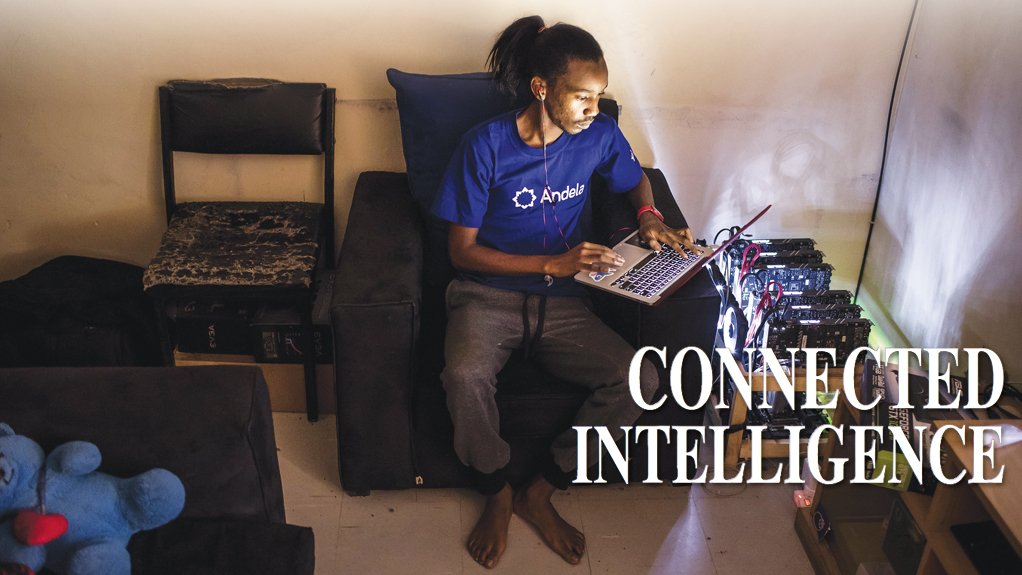
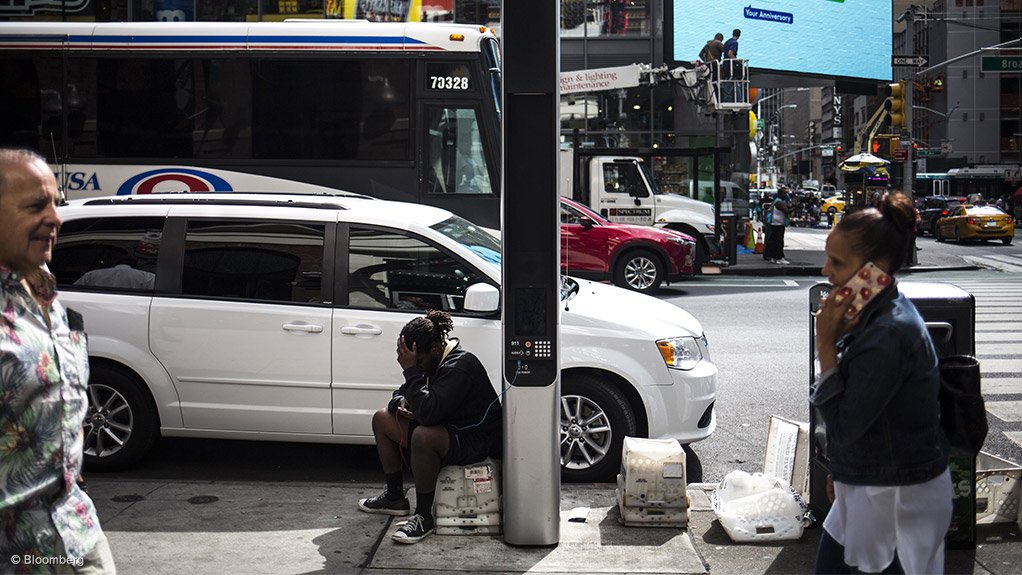
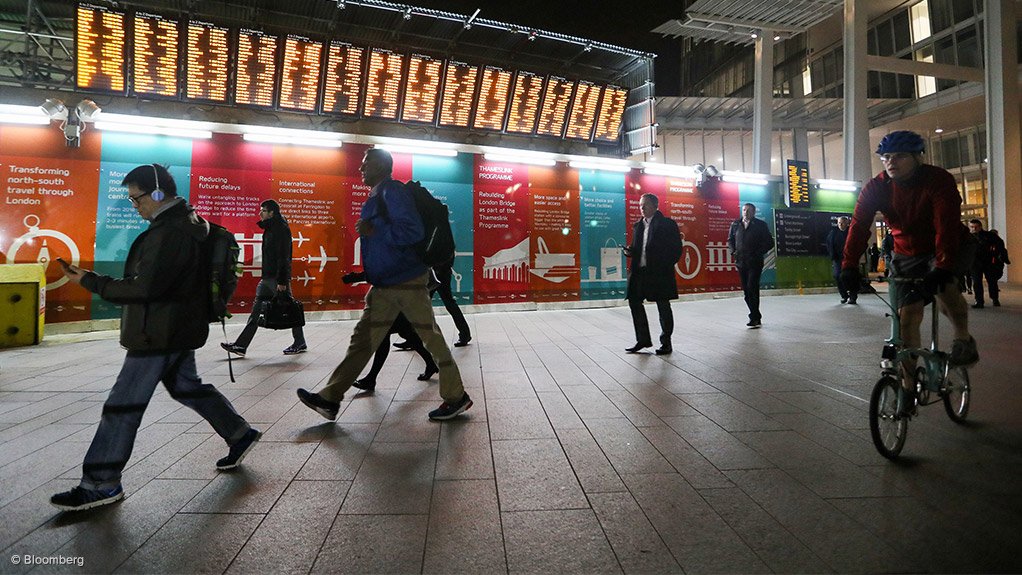
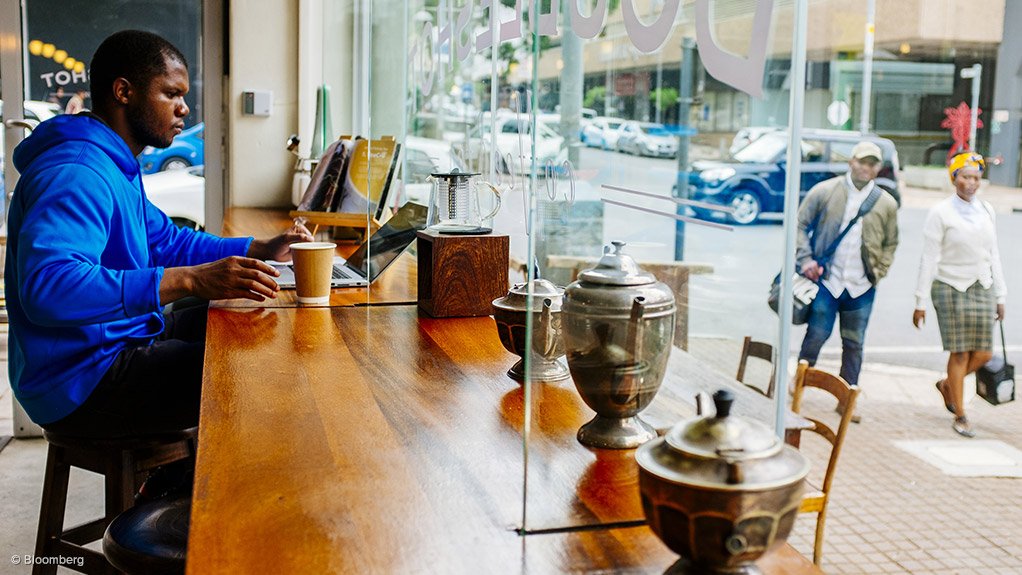

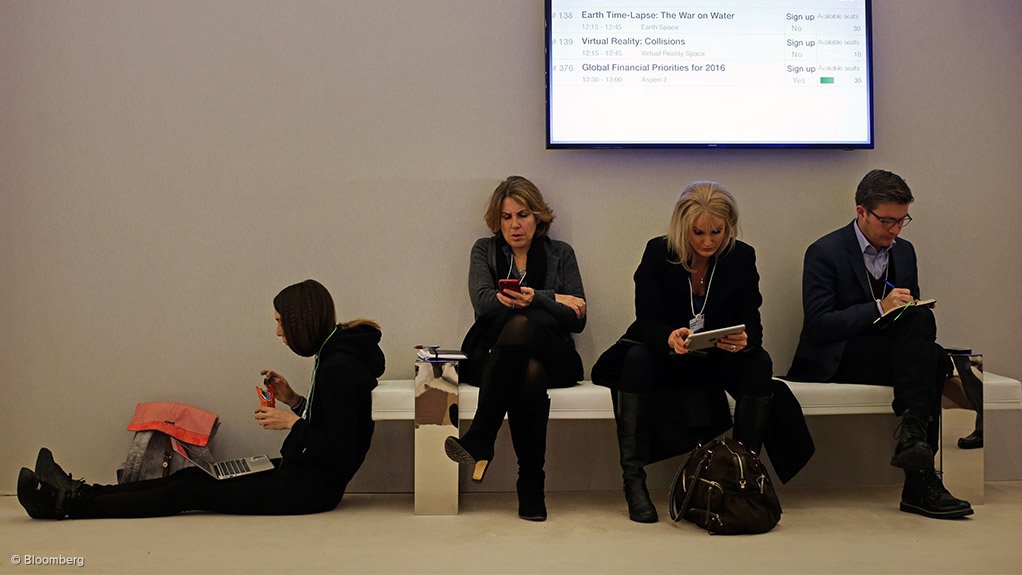
Photo by Bloomberg
DIRECT CONNECTION A man charges his phone at one of New York’s Link terminals, which provide free, high-speed Internet and replaced underused pay phones
Photo by Bloomberg
INCLUSION The inclusion of and engagement with citizens at local and city-wide levels and their ability to access services can be improved through free Internet access and digital technlogies
Photo by Bloomberg
EMPOWERED CITIZENS The ability of communities and sections of society to fund infrastructure and organise themselves to deal with challenges will steadily increase into the future
Photo by Bloomberg
SOCIAL STRUCTURES Smart city initiatives must make space for social opportunity through greater participation in social and economic initiatives
Photo by Bloomberg
ENGAGEMENT PLATFORM City leadership must actively manage changes to city operations to shape the city of the future through the intelligent use of data and providing access to data for all city stakeholders
Photo by Bloomberg
Digital technologies are providing cities worldwide, including several in Africa, with a new set of tools to improve service delivery and bolster social and economic inclusion.
The smart city movement focuses on how technology can serve citizens and how it can make cities more equal and provide a healthy and safe urban environment, says collaborative city development nonprofit organisation Barcelona Global CEO Mateu Hernández.
“Cities are where the big challenges of societies are solved,” says City of Turin (in Italy) deputy mayor Paola Pisano.
“The challenges of employment, poverty, immigration and climate change, among others, are faced by all cities. However, like many other city governments, we are looking at ways of using technology to radically improve citizens’ lives and leverage the collective intelligence and resources of cities to provide new solutions for new problems.”
The City of Turin is co-designing solutions with its smart city partners, entrepreneurs and innovators. The projects aim to define new services and service models, create smart communities and develop a platform for citizens to participate in smart city projects.
Direct Connection
“The aim is to create a direct connection between citizens and the council. The city’s innovation team is also fostering the creation of an open community to develop digital resources and services for the city and use collective intelligence and open technology to improve the local innovation and economic ecosystem.”
The creation of an open data platform enables the City of Turin to gain direct insight into the phenomena of the city, and the growing flow of data is being used to create new services and monitor in real time the impacts and changes of new systems, as well as develop evidence-based policy.
This feedback helps the city to redesign elements of the ecosystem and introduce new technologies, such as blockchain for public data and records, and make the processes of the council more transparent. The city also provides open-infrastructure Wi-Fi and Internet of Things (IoT) networks that citizens and start-up companies can use, explains Pisano.
“The new methods of governing cities and engaging with citizens are driving the need for new competences in city administration and, consequently, leading to a reorganisation of the city’s engagement across its internal divisions and the city’s public and private ecosystem.”
In many ways, cities reflect the history of human innovation and are in the midst of a new wave of innovation. City governments have to race to keep pace, says Dubai (in United Arab Emirates) Smart Dubai director-general Dr Aisha bin Bishr.
“Cities exist to promote the wellbeing of residents and visitors and, as city leaders, we must make the tools available to achieve this. In the past, tools were shovels, cranes and steel, but, today, data is the tool,” she emphasises.
Digital technologies enable Dubai to reorganise its operations, improve its services and be more efficient. Like Turin, it funds technology acceleration programmes and challenges to stimulate use and enterprise creation, as well as pilot project use-cases within government departments, such as blockchain-based government account reconciliation and land registry networks.
“City governments must take an active role in providing an enabling environment for innovation not only through policy and legislation, but [also] by innovating with partners to change their operations and reshape their cities for the future,” she says.
Cities need to change to realise efficient policies and measures based on evidence and data. In the past, city governments did not have transparent policies, concurs City of Fukuoka mayor Soichiro Takashima.
Today, the City of Fukuoka, in Kyushu, Japan, uses IoT and Big Data systems to analyse data to provide proof of the cause and effect relationship between policy, projects and outcomes. This information is then used to increase community awareness and unlock the power of communities to help identify and improve the success of development projects, he explains.
Citizen Participation
When determining how smart cities can be fairer, more resilient and efficient, getting people online is central to all smart-city initiatives, emphasises New York university The New School Urban Policy and Management professor Maya Wiley.
Access to transport, mobility and connectivity are examples of important concerns for building inclusive cities because people can be included or excluded based on their ability to access services, emphasises L'Hospitalet de Llobregat municipality mayor and European Union Committee of the Regions member Núria Marín Martínez.
“The fundamental principle of smart city initiatives is that they must make space for social opportunity, specifically by applying technology to improve the lives of citizens,” she emphasises.
Smart cities that are focused on their people become very successful; however, active leadership and proper collaboration with all city stakeholders are fundamental for any smart city, adds Bin Bishr.
Dubai provides blockchain sandbox tools for entrepreneurs, as well as sensors for communities, development projects and companies to collect data. Users are taught how to derive value from data and what to do with the data, and tools are provided to analyse the data and populate dashboards to drive more efficient, seamless, safe and impactful services and initiatives.
The proliferation of digital tools and the growth of actionable data further enables cities to more accurately determine the needs of their people, adds Bin Bishr.
“Once we discover the needs of our people, we must change all our policies and systems. The focus is not technology, but about how we must change our behaviour to fulfil the needs of people,” she explains.
The main success factor for the democratisation of innovation and the biggest challenge cities face are in changing the minds of the municipal workers and citizens, adds Moscow City Strategy and Innovations adviser Andrey Belozerov.
Smart city initiatives must include training and workshops and governmental and civil communications to explain the purposes of the innovative projects and the objectives they seek to address, so that change is accepted and supported by the feedback and use of the services and systems, he says.
Engagement and Trust
Electronic transaction multinational Mastercard worked with the City of Chicago, in the US, and its innovation partners to build a citizen engagement platform where citizens were requested to allow government to help them navigate the city, for example by receiving updates and proposed alternative routes during major events.
“We thought we would see a 5% opt-in rate, which is normal for such initiatives, but, instead, we saw a more than fivefold higher opt-in rate, which we ascribe to the belief that the intention of the project was to help citizens get to their destinations,” says Mastercard Enterprise Partnerships executive VP Hany Fam.
Trust in city systems and administration must be fulfilled through responsiveness, equity and inclusion, he says.
Cities in developed countries, for example Singapore, and in developing countries, such as Nigeria and South Africa, are making steady progress with citizen engagement platforms, says Fam, noting that digital systems and mobile systems also provide effective poverty alleviation tools, as well as ways of including vulnerable members of society in city affairs and providing access to services.
These citizen data platforms allow for correlations to be recognised, helping cities to intervene early to deal with burgeoning issues, whether unusual or routine. Engagement platforms also provide a consistent pattern of citizen engagement on an opt-in, permission basis that protects users’ identities, states Fam.
Communities should be given assurances and provided with the means to see what data is captured, where it is used and by whom, subsequently enabling cities to have conversations with its citizens around the provision and use of city resources, says Wiley.
The relationships between civic groups, and the public and private sectors, are being redefined, and this is especially important to overcome the shortcomings of current planning and development processes, including addressing long-term and strategic objectives in short-term and small-scale projects, Fam highlights.
Martínez concurs, noting that projects must be designed to complement one another and allow users, whether citizens or government, to grow, broaden and adapt the use of systems to provide additional capabilities and, thereby, reinforce the developmental and economic benefits of digital projects and infrastructure.
Urban Data and Democracy
The main element in supporting redefined public–private partnerships and relationships is the intelligent use of and access to the data to allow for informed decisions by all participants, including civil servants, citizens and private companies, says Fam.
“The ability of communities and various sections of society to fund infrastructure and organise themselves to deal with challenges will steadily increase into the future. Government and the private sector must provide open and consistent standards to ensure safety, security and the protection of privacy to support these changes in civil engagement.”
The change in culture brought about by the new capabilities of digital technologies will more dramatically reshape urban democracy, avers government of Catalonia Telecommunications, Cybersecurity and Digital Society secretary Jordi Puigneró.
Citizens typically participate once every few years in democratic referenda and then rely on elected representatives. However, this will change, as new technologies enable citizens to contribute directly and actively to managing cities and territories.
“How we transform our citizens is key to ensuring that they are active decision- makers to manage and govern cities in the near future. Empowering citizens is crucial because one truth that remains relevant for all administrations, whether city or nation, is that there is always more intelligence outside an organisation than inside it and, hence, greater potential to solve challenges,” he explains.
“City leadership must actively manage changes to city operations to shape the city of the future, because, without proper inclusion of and collaboration with all city stakeholders, an effective smart city would not be possible,” concludes Bin Bishr.
•
All contributors spoke at the Smart City World Congress 2017.
Comments
Announcements
What's On
Subscribe to improve your user experience...
Option 1 (equivalent of R125 a month):
Receive a weekly copy of Creamer Media's Engineering News & Mining Weekly magazine
(print copy for those in South Africa and e-magazine for those outside of South Africa)
Receive daily email newsletters
Access to full search results
Access archive of magazine back copies
Access to Projects in Progress
Access to ONE Research Report of your choice in PDF format
Option 2 (equivalent of R375 a month):
All benefits from Option 1
PLUS
Access to Creamer Media's Research Channel Africa for ALL Research Reports, in PDF format, on various industrial and mining sectors
including Electricity; Water; Energy Transition; Hydrogen; Roads, Rail and Ports; Coal; Gold; Platinum; Battery Metals; etc.
Already a subscriber?
Forgotten your password?
Receive weekly copy of Creamer Media's Engineering News & Mining Weekly magazine (print copy for those in South Africa and e-magazine for those outside of South Africa)
➕
Recieve daily email newsletters
➕
Access to full search results
➕
Access archive of magazine back copies
➕
Access to Projects in Progress
➕
Access to ONE Research Report of your choice in PDF format
RESEARCH CHANNEL AFRICA
R4500 (equivalent of R375 a month)
SUBSCRIBEAll benefits from Option 1
➕
Access to Creamer Media's Research Channel Africa for ALL Research Reports on various industrial and mining sectors, in PDF format, including on:
Electricity
➕
Water
➕
Energy Transition
➕
Hydrogen
➕
Roads, Rail and Ports
➕
Coal
➕
Gold
➕
Platinum
➕
Battery Metals
➕
etc.
Receive all benefits from Option 1 or Option 2 delivered to numerous people at your company
➕
Multiple User names and Passwords for simultaneous log-ins
➕
Intranet integration access to all in your organisation
























